Department of Family Services Alert:


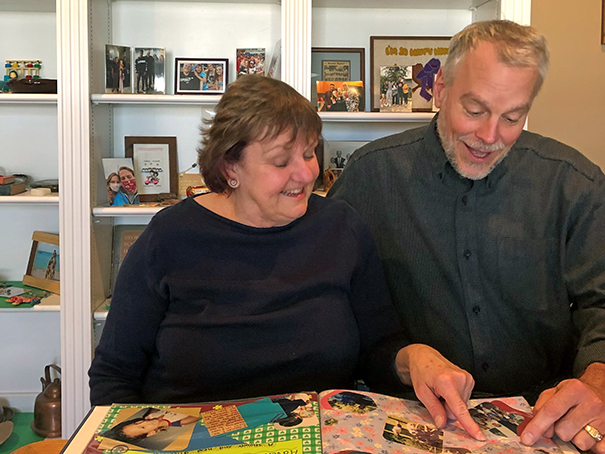 Fostering Children Never Grows Old
Fostering Children Never Grows Old
No matter your age, you can impact the community through opening your heart and home. For Liz Murphy and her husband Mark Heinitz becoming foster parents was fulfilling and life changing. Loving and helping children in need also cultivated understanding and compassion in their own two young daughters. Learn more about Liz and Mark's story.
 Virtual Annual Scam Jam 2021 Friday, April 23 (9-11:30 a.m.)
Virtual Annual Scam Jam 2021 Friday, April 23 (9-11:30 a.m.)
The Fairfax Silver Shield Task Force along with AARP are gathering top experts and law enforcement officials to present at a free informational virtual Scam Jam. The event will be hosted on Zoom. The keynote speaker is Susan Hogan, consumer investigative reporter for NBC News4. Her remarks will focus on how individuals can outsmart scammers.
Presenters and exhibitors will discuss scams targeting Virginians, such as internet, telephone and mail fraud. The COVID-19 rescue and vaccination schemes, and the latest identity theft shams. Registration is required.
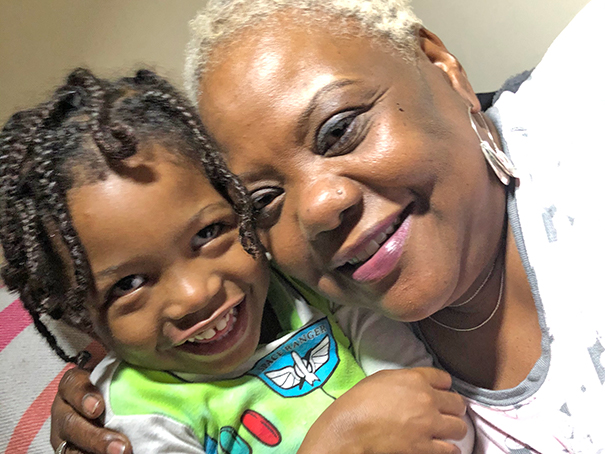 Raising a Relative’s Child? You Are Not Alone
Raising a Relative’s Child? You Are Not Alone
If you are raising a child for a family member or friend, then you are a kinship caregiver. And you are not alone. Raising a relative’s child can be incredibly rewarding and have many benefits. Children in kinship placements (rather than non-relative placements) tend to experience more stability, fewer disruptions, and experience a sense of belonging from their continued connectedness to family and culture. Learn more about kinship caregiving and the available support.
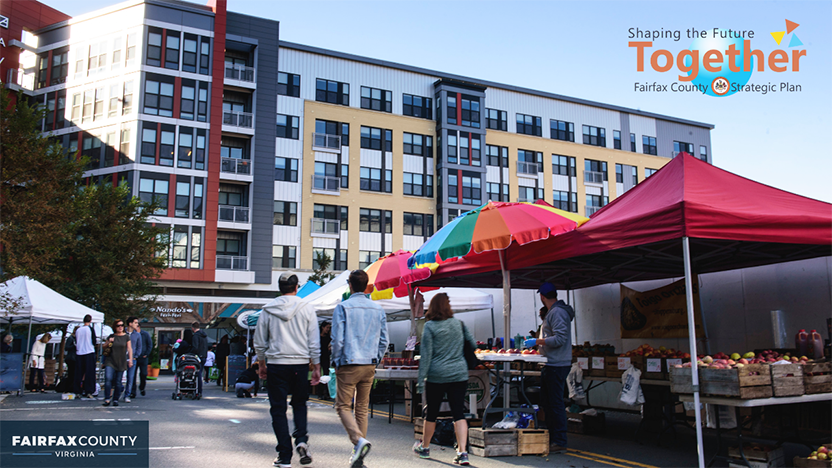 Help Shape the Future of Your Community and Neighborhood!
Help Shape the Future of Your Community and Neighborhood!
Fairfax County has proposed its first-ever Countywide Strategic Plan which will chart a future path over the next 10-20 years. As the economy recovers from the pandemic and we enter a new phase of our public health response, there are significant budget challenges that will require focus on limited resources for top community priorities and most urgent needs. Take the Countywide Strategic Plan survey to help prioritize the work. Learn more about the Strategic Plan and take the survey.
 Working to Reduce the Technology Gap Among Older Adult
Working to Reduce the Technology Gap Among Older Adult
One year ago, senior centers in Fairfax County were closed due to the COVID-19 pandemic. In response, the Virtual Center for Active Adults launched so that older adults and adults with disabilities could stay connected by participating in virtual classes and events. One major barrier for successfully participating in events is a lack of technology skills or fear of technology among older adults. Recognizing this, VCAA staff and their partners have been working to remove this barrier. Learn more about how VCAA overcame the challenge.
 Long-Term Care Facility Discharges – What You Need to Know
Long-Term Care Facility Discharges – What You Need to Know
Being discharged from a long-term care (LTC) facility can cause a mixture of feelings for a resident and their families. Many are happy at the thought of returning home, while others are confused about the discharge process. All LTC facilities must provide notice of discharge to a resident, or authorized decision maker, in writing. The discharge regulations vary between a nursing facility and assisted living. Learn more about LTC facility discharge and what to expect.
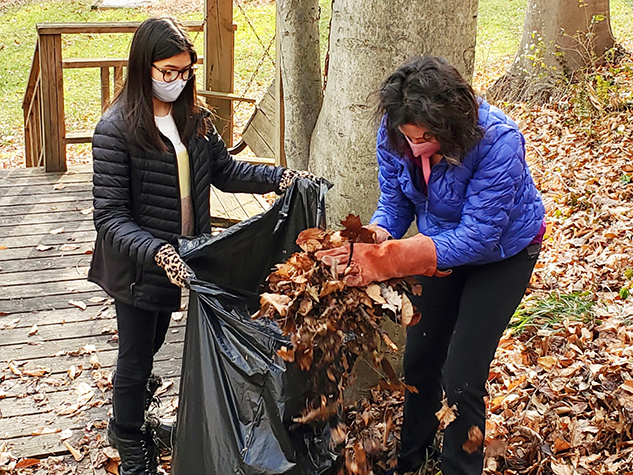 Recognizing Volunteers During an Unprecedented Year
Recognizing Volunteers During an Unprecedented Year
This past year has been tumultuous and unpredictable. A friendly phone call, a caring card, a clean yard, and Meals on Wheels are ways volunteers from Volunteer Solutions have been letting others know they care. While some volunteers are waiting to participate once they feel comfortable or when more opportunities become available, many have been taking part in new, pandemic-altered roles. Thank you to all of the invaluable volunteers ready and willing to help others! Learn more about how volunteers have been helping the community.
 Be Kind to Those with a Hoarding Disorder – Especially If That Person is Yourself!
Be Kind to Those with a Hoarding Disorder – Especially If That Person is Yourself!
Hoarding is a real-life struggle. It is the need to obsessively collect things, even if worthless, or a tendency to hang onto items you really don’t need. As with most conditions, understanding and empathy, along with a big dose of kindness and patience, can help those who suffer. Learn more about hoarding and how to be helpful and kind to those facing this struggle.
(Article by Jacquie Woodruff, Director, Livable Communities Development, Fairfax Area Agency on Aging)
The Fairfax Area Commission on Aging (COA) is an advisory board mandated by the Older Americans Act. Commissioners for the Fairfax Area Commission on Aging are appointed by the Board of Supervisors and the City Councils of the City of Fairfax and the City of Falls Church.
At the Wednesday, March 17 meeting, the Department of Family Services (DFS) Communications team and the COA discussed communication supports for older adults, including website and Facebook content. The Commission also received an update on the DFS Equity Impact Plan.
(Article from Virginia Insurance Counseling and Assistance Program)
This virtual Medicare 101 Workshop, led by the Virginia Insurance Counseling and Assistance Program (VICAP), provides information on Medicare coverage options including Parts A, B, C and D, Medigap, and new changes to Medicare. Registration is required.
Medicare 101 Tuesday, June 1 Virtual, 1-2:30 p.m.
Tysons-Pimmit Regional Library, Falls Church
To register, call 703-790-8088, option 4 or go online If you need reasonable ADA accommodations, call 703-324-5851, TTY 711. Registration begins May 4, 2021.
Medicare Fair! Wednesday, June 23, Virtual, 3-7 p.m.
This free virtual Medicare Fair is for people turning 65 or joining Medicare because of a disability. Learn about Medicare and all its parts to assist you with your initial enrollment decisions. Learn more at ShipHelp.org. Registration opens in April.
(Article from the Fairfax County Health Department)
Some COVID-19 vaccines require two doses to be fully vaccinated. Here is what you need to know about getting the second dose of Pfizer-BioNTech or Moderna.
When people receive their vaccine, they are given a COVID-19 Vaccination Record Card. The nurse who gives the shot fills this card out for you. The front side of the card will include your name, date of birth, the manufacturer and lot number of vaccine provided, the date the vaccine was given, and the location.
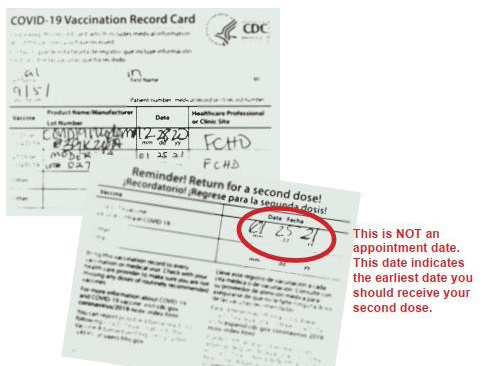 Once the nurse has filled out the first side of the card, she or he will flip the card over and write down the date when you are eligible for your second dose. Depending on the vaccine, this date will be either three weeks or four weeks later.
Once the nurse has filled out the first side of the card, she or he will flip the card over and write down the date when you are eligible for your second dose. Depending on the vaccine, this date will be either three weeks or four weeks later.
The date on the back of your vaccination record card is not an appointment date. It is the date when you are eligible to receive your second dose.
According to the Centers for Disease Control and Prevention, second doses administered within a grace period of four days earlier than the recommended date for the second dose are still considered valid. The second dose should be administered as close to the recommended interval as possible. However, if it is not feasible to adhere to the recommended interval and a delay in vaccination is unavoidable, the second dose of Pfizer-BioNTech and Moderna COVID-19 vaccines may be administered up to six weeks (42 days) after the first dose.
All vaccines are administered by appointment.
Your vaccine provider will provide details on scheduling your second dose. Bring your vaccination card with you to your second appointment. The nurse will review it, then write in the manufacturer and lot number along with the date when you receive your second dose.
Hold on to your card or take a picture of it. This is your documentation that you’ve been vaccinated. If you have vaccine questions, call the COVID-19 hotline at 703-324-7404.
(Article by Giuliana Valencia, DFS Caregiver Coordinator)
Many family caregivers get satisfaction and meaning in caring for a loved one, but the increasing complexity of caregiving may be adding stress, anxiety, and depression. It has become common for caregivers to perform medical/nursing tasks and manage multiple health conditions, such as injections, tube feedings and managing medical equipment without proper support. If you are in this situation, ask for help. Talk with your loved one’s health care providers, ask questions, and speak up if you think their needs are not being met. Additionally, learn about the many resources available, such as education and training, so that you can become an effective caregiver.
For an in-depth conversation with a social worker about caregiving needs, call 703-324-5374, TTY 711. Ask for a caregiver consultation, between 8 a.m. and 4:30 p.m., Monday through Friday.
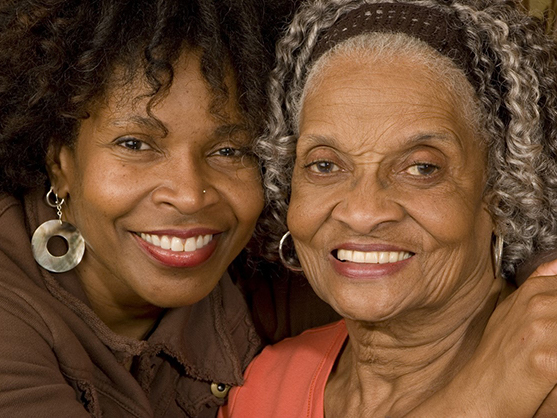 This webinar, presented by Sally Hurme, AARP Elder Law Attorney, will explore all the legal tools a caregiver may need to have when being “just a caregiver” is not enough. Hurme will cover the tools—joint accounts, powers of attorney, advance directives, representative payeeships, and guardianships—and how best to use them.
This webinar, presented by Sally Hurme, AARP Elder Law Attorney, will explore all the legal tools a caregiver may need to have when being “just a caregiver” is not enough. Hurme will cover the tools—joint accounts, powers of attorney, advance directives, representative payeeships, and guardianships—and how best to use them.
Join us on Wednesday, April 21 from 12-1 p.m.
Register online or call 703-324-5484
Caregiving can be challenging, and burnout is a real concern. Sometimes finding the humor in a situation and laughing out loud with your loved one is the best choice for that moment.
Join us on Tuesday, April 13 from 7-8 p.m. and have a conversation about using humor for well-being. This session will be held via Zoom. A link and alternate phone number to join by computer or phone will be provided after sign-up.
Register online.
Fairfax County Library offers a personalized reader advisory, books in alternative formats for individuals with print disabilities and delivery of materials to people who cannot physically visit a local library due to age, disability, illness, or frailty. They also provide deposit collections at select facilities and opportunities to learn about assistive technologies.
Find more online or call 703-324-8380 or TTY 703-324-8365.
If we can’t reach you, we can’t alert you. Family caregivers can receive email or text notifications of Fairfax County caregiver services and programs. These programs include case management, in-home respite, caregiver support and webinars, wellness workshops, and much more.
Visit Fairfax County Alerts to create or sign into your Fairfax Alerts account and then select Area Agency on Aging.
(Article from Northern Virginia Resource Center for Deaf & Hard of Hearing Persons)
Sometimes the mind does not know the difference between what is real, and what is not real. Most of us don’t realize the power and control given to thoughts that influence our feelings and actions. Learning to recognize unpleasant thoughts and, then, creating positivism can help navigate stressful times.
Attend Surviving the Pandemic Anxiety: The Power of Positive Thinking, Saturday, April 10, 10-11 a.m. via Zoom. This program also will be American Sign Language interpreted and captioned. For other ADA accommodations, send an email. Register online.
The Shepherd Centers primary purpose it to assist older adults to live independently and to offer programs for enrichment and socialization.
The Meals on Wheels nutrition program provides home delivered nutrition services targeted to persons 60 years of age or older as well as younger individuals who may have a disability and are temporarily unable to prepare meals for themselves due to illness or accident.
Weekly meals are available for in-home delivery. Priority is given to older individuals with the greatest economic and social need, with special emphasis on low-income minority individuals, older individuals with limited English proficiency, and individuals at risk for institutional placement.
The program is targeted to support eligible adults to remain independent in their own homes with support by this program.
The meals program currently provides a weekly, contact-free meal delivery of 11 flash frozen meals. Meals are delivered one time per week.
Apply by calling the Department of Family Services 703-324-5409.
The Supplemental Nutrition Assistance Program (SNAP) can be used like cash to buy food from authorized retailers and online from Amazon and Walmart but not delivery fees.
Recipients receive an Electronic Benefit Transfer card.
Your account is debited each time eligible food items are purchased.
A secret Personal Identification Number is required.
Your household must meet certain requirements to be eligible for SNAP benefits.
The application process can be done by computer or phone—no need to come in-person. Apply online at CommonHelp or call 1-855-635-4370.
For details, call the Department of Family Services Customer Care Line at 703-324-7500, TTY 711.
Fridays, 1-2 p.m., Free, The Helping Hands Stroke Club Virtual Support Group
Due to the COVID-19, we are currently meeting on Zoom. If you would like to attend a meeting, please contact call 703-246-7120 or email.
Wednesday, April 7, 10 a.m., Free, Monthly Zoom Form, Lifelong Learning Institute
David K. Owens, former executive vice president, Edison Electric Institute, will discuss recent power grid issues within the U.S. Learn about how Puerto Rico and Texas are undergoing massive energy transformations. By 2050, 100% of Puerto Rico’s power is expected to come from renewable sources. Learn more and join this and other monthly virtual forums at llinova.org.
Wednesday, April 14, 12:30–2 p.m., Grow the Lawn of Your Dreams, Zoom Garden Program
Creating a beautiful lawn isn’t difficult. Extension master gardeners show you how to develop healthy turf that can withstand pest pressure and dry weather. For the virtual plant clinics go to Fairfax Gardening.
Saturday, April 17, 2-3 p.m., Free, Virtual Author Reading, Local author Shabnam Curtis: My Persian Paradox: Memories of an Iranian Girl
Listen to Curtis read a few passages of her memoir. and talk about her journey of seeking freedom and authenticity. Register at the library calendar.
Tuesday, April 20, 1-3 p.m. Virtual Lecture: Mount Vernon Genealogical Society, Arriving in America in the Early 19th Century
Genealogist Sharon Hodges discusses coming to America through New York City’s Barge Office, Castle Garden, and Ellis Island. Nonmembers are welcome to attend one event each year free of charge. Register no later than Monday, April 12 at MVGenealogy.org or by emailing your name.
Wednesday, April 21, 11:30 a.m., Free, Virtual, Parkinson’s Café
There’s more to life than Parkinson’s. Come together virtually to chat, share experiences and enjoy coffee and doughnuts in the comfort of your home. Free. To RSVP, call 571-286-5000. More information at Parkinson Social Network.
Access the print version of this month's newsletter.*
Check out the past newsletters – web version or print version.

*Fairfax County is committed to nondiscrimination on the basis of disability in all county programs, services and activities. To request reasonable accommodations or to receive this information in an alternate format, call 703-324-7948 or TTY 711.
